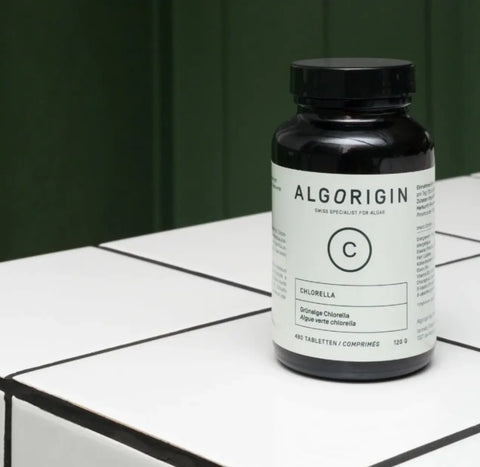Omega 3 DHA, Docosahexaenoic acid, or DHA, is a type of omega-3 fat. Likewise, eicosapentaenoic acid (EPA), DHA, is found a lot in fatty fish, such as salmon and anchovies. Your body can only make a small amount of Omega 3 DHA from other fatty acids, so you must consume it directly from food or a supplement.
Alone, Omega 3 DHA promotes brain function and eye health.
Here are 12 Health Benefits of Omega 3 DHA, Backed by Science
1. Support brain health
Omega 3 DHA has many benefits for health and for the body in general. In this article, we list them for you. Omega-3 DHA is most often recommended for brain health. Many studies show that daily consumption of 250mg of DHA allows the proper functioning and development of the brain and its cognitive functions such as memory or concentration.
Additionally, in a review of 20 observational studies, higher intake of omega-3 fatty acids was linked to a reduced risk of decline in mental abilities. Evidence suggests that DHA and other omega-3 supplements may be most beneficial before brain function declines significantly and interferes with daily activities.
2. Development of the fetal vision:
Omega 3 DHA is a type of fat that is particularly important for normal fetal eye development. Consumption of Omega 3 DHA by pregnant or breastfeeding women contributes to the good development of the vision and eyes of the fetus and breastfeeding child.
3. Development of the fetal brain:
Omega 3 fatty acids such as DHA provide benefits for brain development in fetuses and breastfeeding children.
It is therefore particularly important to ensure that one is consuming sufficient amounts of DHA during pregnancy and while breastfeeding, whether through diet, supplements or both. To achieve these levels, pregnant women are advised to consume 226 grams of fish rich in omega-3 and low in mercury each week, or 250 mg of DHA as a supplement (1 capsule of Omega 3 DHA Algorigin). Many women take prenatal vitamins, but remember that some products do not contain DHA, so read the label carefully.
4. Can improve ADHD
Attention deficit hyperactivity disorder (ADHD) – characterized by impulsive behaviors and difficulty concentrating – usually begins in childhood but often continues into adulthood. As the brain's primary omega-3 fat, DHA contributes to normal brain function.
5. Helps certain eye conditions
Consumption of organic Omega 3 DHA contributes to the maintenance of normal vision, which could limit the risks of eye degeneration. Despite some beliefs, it is not certain that DHA and other omega-3 fatty acids help age-related macular degeneration (AMD) however some studies show that they can improve dry eye.
6. Contributes to normal brain and eye development in babies
DHA is essential for the development of babies' brains and eyes. These organs develop at high speed during the last trimester of pregnancy as well as the first years of life. It is therefore essential for women to consume the sufficient amount of DHA for pregnancy and breastfeeding.
In a study of 82 babies, mothers' DHA levels before delivery accounted for 33% of the difference in child problem-solving ability at one year of age, suggesting a link between higher DHA levels in mothers and better problem solving in their children. It is worth noting that premature babies have higher needs for DHA, as the majority of this fat is obtained during the third trimester. In a study of 31 premature babies, daily doses of 55 mg per pound (120 mg per kg) of DHA for one month after birth prevented the drop in DHA typically seen after premature birth, compared to a placebo.
7. Prevent deficiencies:
DHA is essential for many brain and eye functions. Consequently, it is important to prevent and treat Omega 3 DHA deficiencies as soon as they appear. Algorigin Omega 3 DHA supplements, based on healthy algae, are 100% plant-based, which helps prevent Omega 3 and DHA fatty acid deficiencies, particularly for vegan, vegetarian or low fish diets. .
How much DHA do you need?
Experts have not set a Reference Daily Intake (RDA) for DHA, but it is generally recommended to consume 200 to 500 mg of DHA plus EPA per day for good health. This intake can come from fish, supplements or a combination of the two. There is no upper limit to the amount of DHA you can take, but the FDA has advised limiting total intake of DHA and EPA from all sources to no more than 3,000 mg per day, of which only 2 000 mg that comes from supplements.
Still, the doses used in some studies are higher, and the European Food Safety Authority says that up to 5,000 mg per day of EPA and DHA in supplements appears safe. It is best to discuss omega-3 supplement doses with your doctor if you have specific health concerns or if you plan to take high doses.
For good general health, aim for 250 to 500 mg per day of DHA and EPA from fish, supplements, or both.
Precautions and Potential Side Effects
If you have health problemsor are taking medications, consult your doctor before taking DHA supplements. High doses of DHA and EPA can thin the blood. Therefore, if you are taking a blood thinner or have surgery planned, your doctor may advise you to avoid fish oil supplements or monitor yourself more closely.
If you are allergic to fish, your doctor may advise you to avoid fish oil supplements, although very pure fish oils may not pose a problem. Algae is a non-fish source of DHA used in some dietary supplements. Other potential side effects of DHA are a fishy taste in the mouth and burping. Choosing highly purified supplements and freezing the capsules can help minimize these side effects.
Take DHA and other fish oil supplements under a doctor's supervisionif you have a medical condition, are taking certain medications, or have any medical conditions. Freezing fish oil capsules can reduce fishy taste and burping.
Conclusion
DHA is an omega-3 fatty acid that you need to get through food, supplements, or both, because your body doesn't produce much of it. For good overall health, aim for a daily intake of 200 to 500 mg of DHA and EPA from food, supplements, or both.



